Romans 7:1-8:4
Volume 6: The Law, Its Functions and Limits
500 in stock
| Weight | 1.24 lbs |
|---|---|
| Dimensions | 8.8 × 5.75 × 1 in |
| ISBN | 9780851511801 |
| Binding | Cloth-bound |
| Topic | The Law |
| Original Pub Date | 1973 |
| Banner Pub Date | Dec 1, 1973 |
| Page Count | 376 |
| Scripture | Romans |
| Format | Book |
| Set | Romans |
Book Description
This volume deals with what is undoubtedly one of the most controversial chapters in the Bible. ‘It will be clear from the exposition that the theme of this volume is no mere fascinating theological or intellectual problem, but one which is of vital importance to Christian experience, and to the health, well-being, and vigour of the Church.’– From the author’s preface
Table of Contents Expand ↓
| Preface | Xi | |
| One | 1 | |
| The correct approach to a controversial chapter - the purpose of the chapter - a bird's eye view - the relevance of the teaching - three mistakes made by Christians. | ||
| Two | 14 | |
| Law in general, the indirect approach - marriage as a picture of the unbeliever's relationship to the Law - four reasons for choosing this illustration - the nature of our death to the Law. | ||
| Three | 29 | |
| A general definition of the Christian life - a radical change - the tests of life the centrality of Christ - the body of Christ, crucified and raised. | ||
| Four | 42 | |
| Union with Christ in His death to the Law - the old husband and the new loyalty to the new husband - an indissoluble relationship. | ||
| Five | 55 | |
| The privileges of our marriage - our possessions in Christ - His love and care fruit, the purpose of the union. | ||
| Six | 68 | |
| The necessity of the change - life in the flesh - passions and lusts - the positive power of sin - the futility of morality. | ||
| Seven | 83 | |
| The completeness of the change for all Christians - our discharge from the Law's control - the aim of our deliverance - the new slavery - letter and spirit. | ||
| Eight | 96 | |
| Seven particular differences between the old life and the new - the external and the internal - understanding - letter and spirit - motive - liberty - power progression to glory. | ||
| Nine | 109 | |
| The vindication of the Law - the preliminary 'law-work' - lusts and sin - the tenth commandment and Paul's knowledge of sin. | ||
| Ten | 120 | |
| Sin as a power - the Law used as a fulcrum - the slave-master - the aggravation of lawlessness - practical conclusions. | ||
| Eleven | 132 | |
| An analysis of his own experience - sin lying dormant - the 'coming' of the Law - self-confidence dies - the test of our reaction to the Law. | ||
| Twelve | 147 | |
| The Law and life - the Law and death - diagnosis of the moral state of the country - sin's use of the Law to deceive - the darkening of the understanding. | ||
| Thirteen | 161 | |
| The holiness and goodness of the Law - the exposing of the sinfulness of sin Paul's experience under conviction of sin - the time of this experience. | ||
| Fourteen | 176 | |
| Three interpretations of v, 14ff - the inductive method - general analysis of the section - the theme still the function of the Law - the change of tense the meaning of 'carnal'. | ||
| Fifteen | 189 | |
| The key-phrase - the implications of 'sold under sin' for the various views v15, a description of his life as a whole - defeat, failure and regeneration. | ||
| Sixteen | 201 | |
| Logical inferences - a daring statement - a complicated description of duality confession, not excuse - sin frustrating the Law. | ||
| Seventeen | 213 | |
| The law of his daily experience - the inward man and the members - a different law - various interpretations of 'captivity' - an anguished cry of defeat. | ||
| Eighteen | 225 | |
| An interjection of praise - consideration of the passage as a whole - comparison with other, apparently similar, passages - Galatians 5, I Corinthians 9, etc., show victory not defeat. | ||
| Nineteen | 238 | |
| Paul's description of the regenerate man incompatible with this passage - other writers considered - some attempted reconciliations - the second blessing theory - the conclusion. | ||
| Twenty | 258 | |
| The connection of chapter 8 with chapter 5 - outline of the chapter - the outworking of the theme as stated in verse I. | ||
| Twenty-one | 269 | |
| Justification, not sanctification, the theme - no more condemnation - union with Christ the guarantee of our ultimate glorification. | ||
| Twenty-two | 280 | |
| Matters of translation - a wrong interpretation in terms of sanctification proof that 'the law of sin and death' is the Law of God.- the law of the Spirit and the reign of grace. | ||
| Twenty-three | 295 | |
| The enjoyment of assurance - the impossible thing of the Law - Dr. Hodge's interpretation refuted - righteousness imparted as well as imputed. | ||
| Twenty-four | 308 | |
| The helplessness of man - God's salvation - the eternal Sonship of Christ - the second Man, the guarantee of our salvation. | ||
| Twenty-five | 318 | |
| The reality of the Incarnation - Christ's sinlessness - the Virgin Birth and 'the Immaculate Conception' - the infirmities of Christ's human nature - the necessity for a coming as man. | ||
| Twenty-six | 332 | |
| An offering for sin - Perfectionism not taught here - Christ's death and imparted righteousness - justification and sanctification not to be separated. | ||
| Twenty-seven | 343 | |
| The general tenor of the Christian's life - different appearances of walking in the flesh - the leading of the Spirit - a false division between Christians - holiness and assurance. | ||
| Appendix | 357 | |
| Puritan testimony |
You may also like…

Romans
14 Volume Set
Description
The longest series of expositions preached in Westminster Chapel during Dr Lloyd-Jones’ 30-year ministry there was on this the greatest of the New Testament Epistles. 238–528pp.
Related products
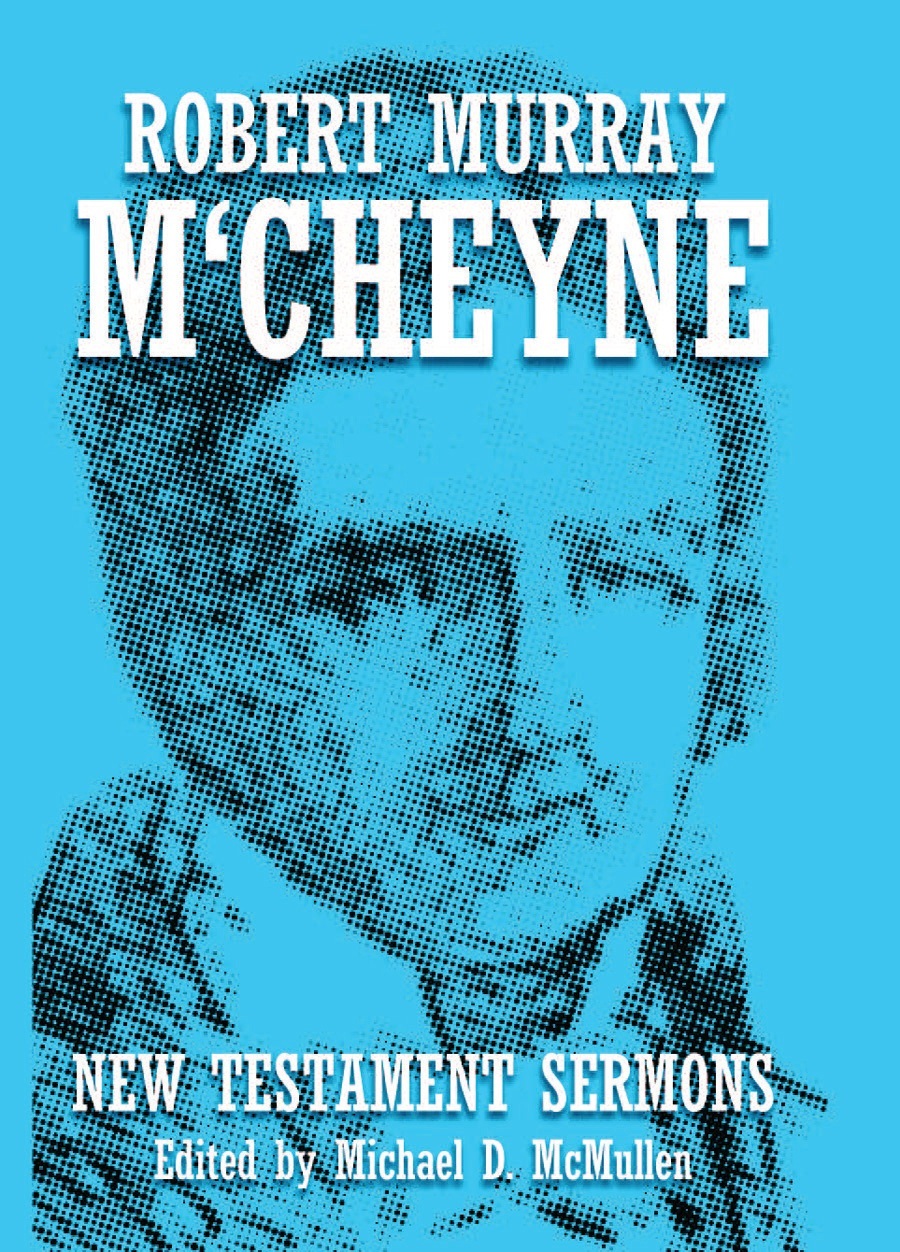
Description
The longest series of expositions preached in Westminster Chapel during Dr Lloyd-Jones’ 30-year ministry there was on this the greatest of the New Testament Epistles. 238–528pp.
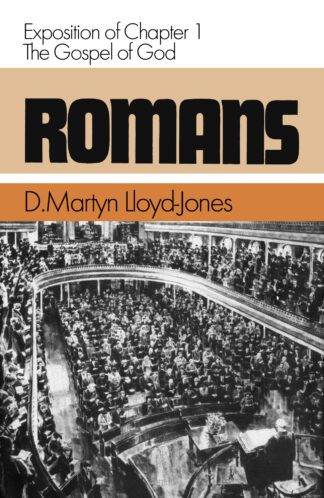
Romans 1
Volume 1: The Gospel Of God
Description
The longest series of expositions preached in Westminster Chapel during Dr Lloyd-Jones’ 30-year ministry there was on this the greatest of the New Testament Epistles. 238–528pp.
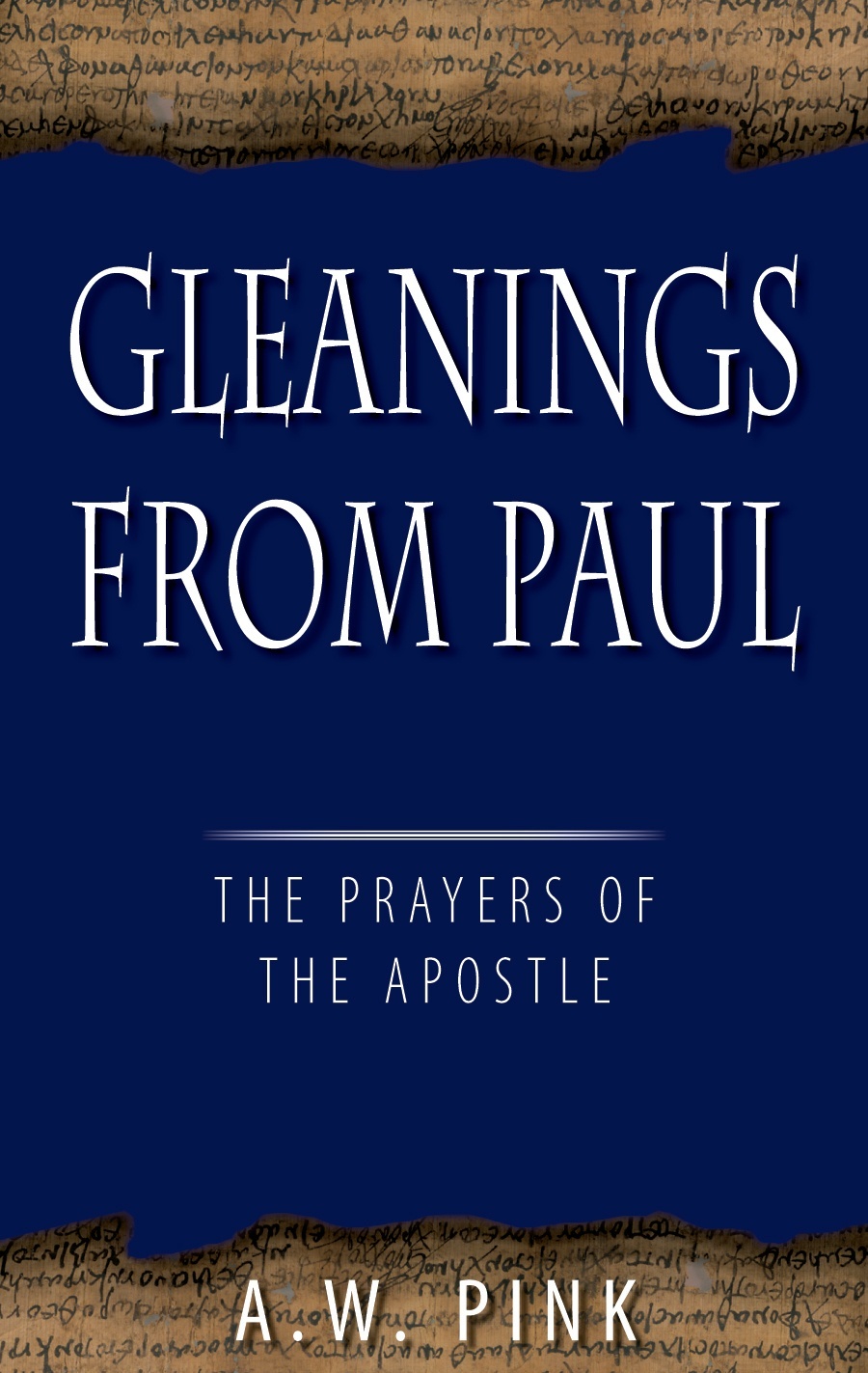
Gleanings From Paul
The Prayers of the Apostle
Description
The longest series of expositions preached in Westminster Chapel during Dr Lloyd-Jones’ 30-year ministry there was on this the greatest of the New Testament Epistles. 238–528pp.

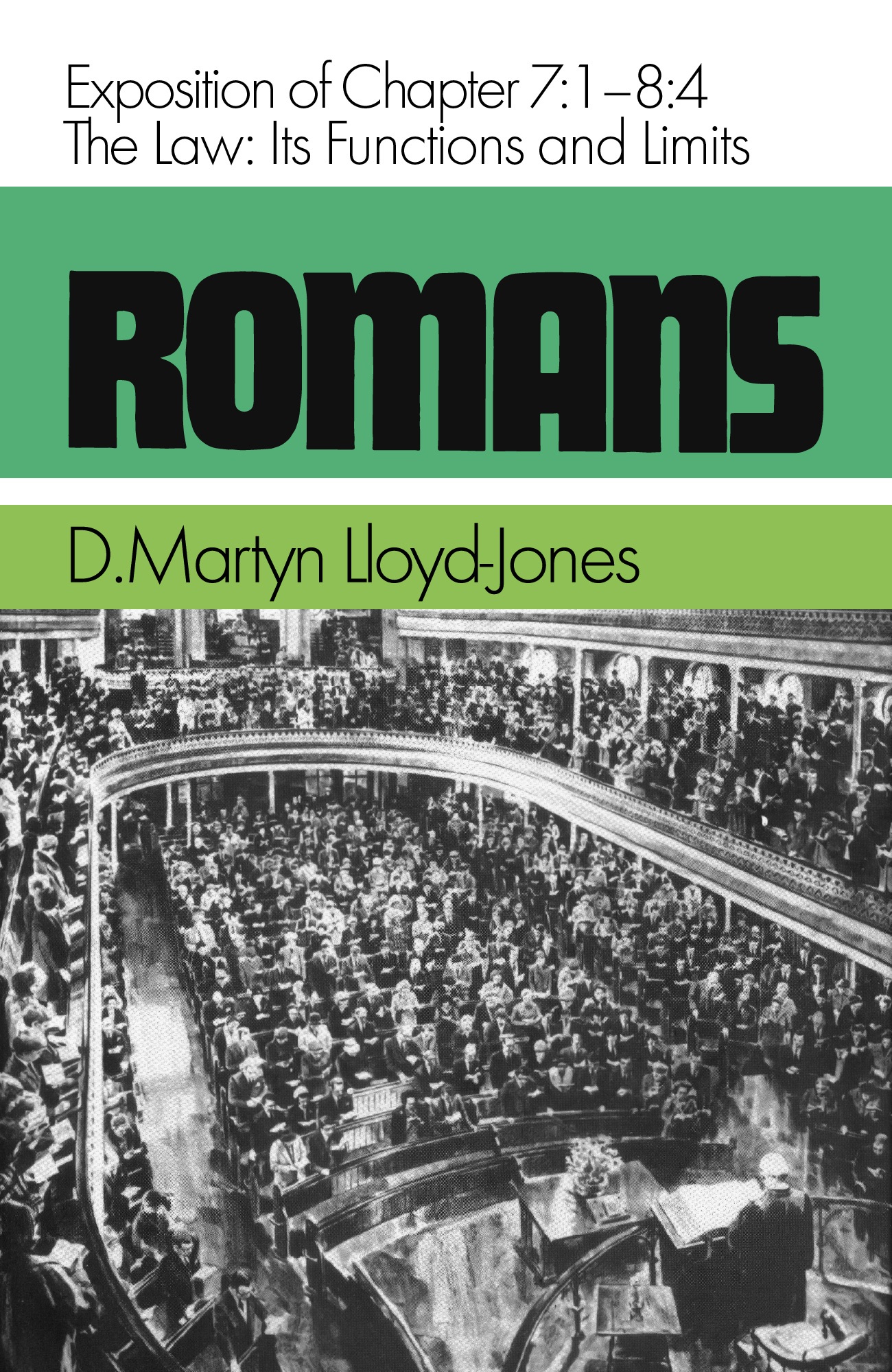
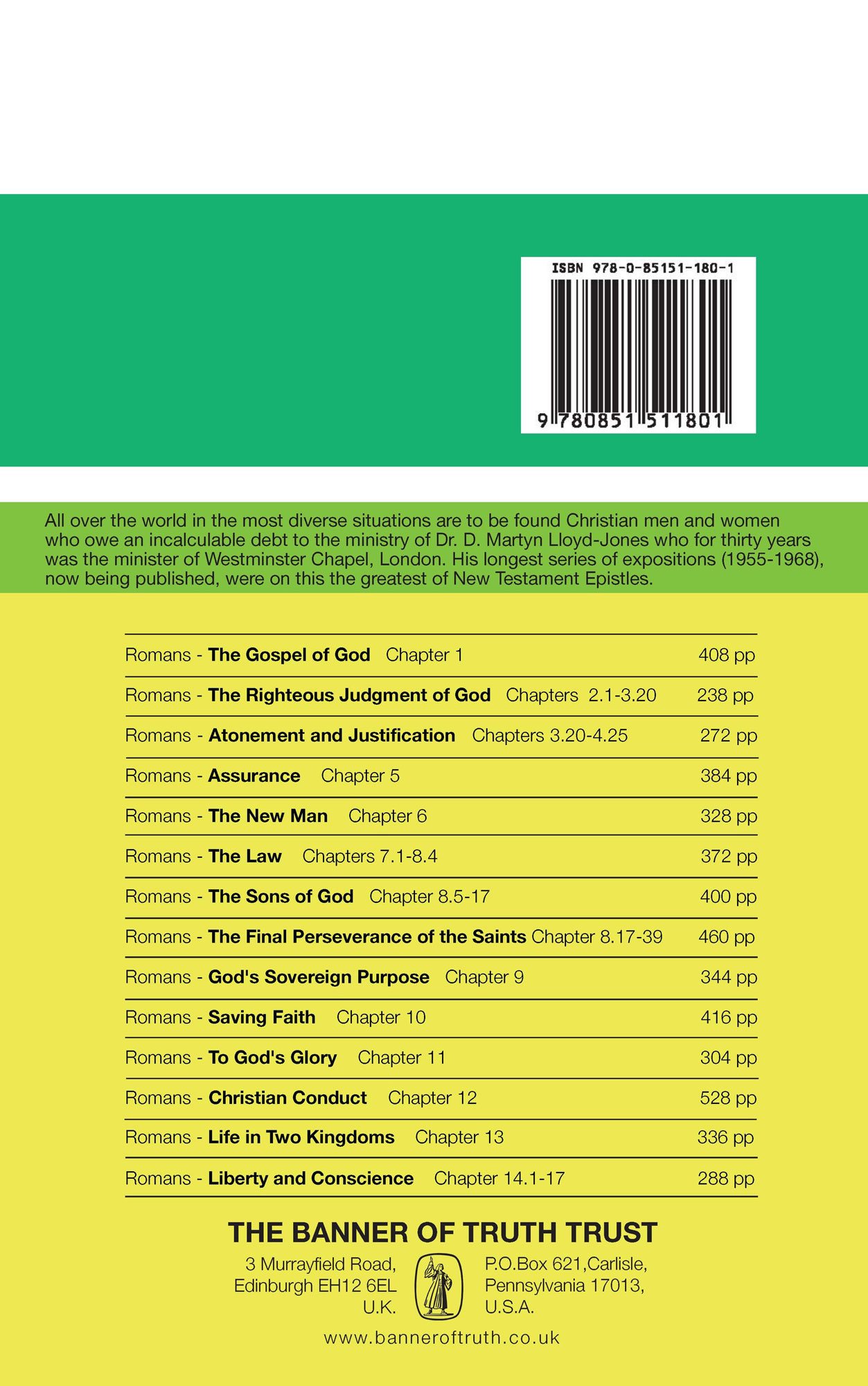
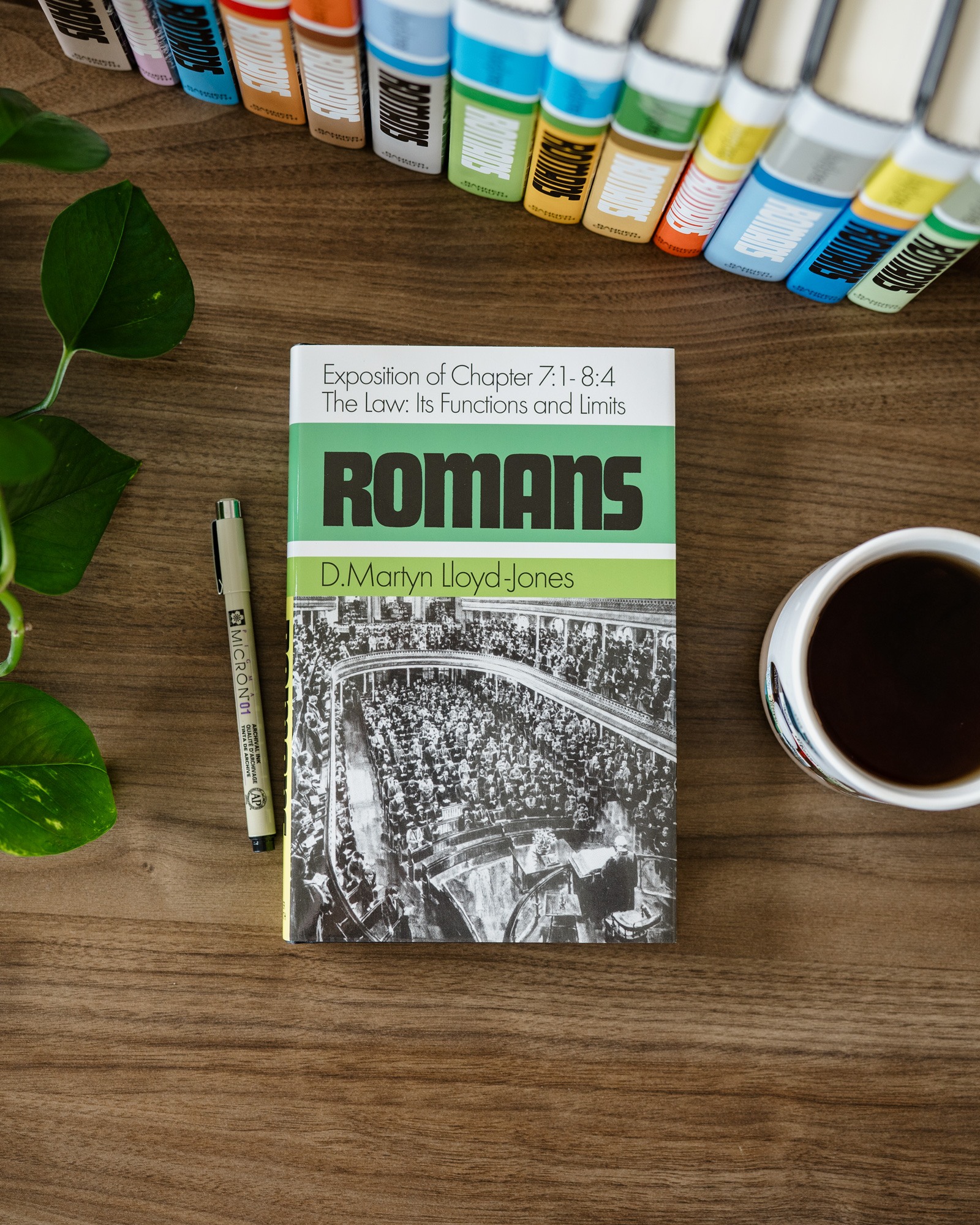


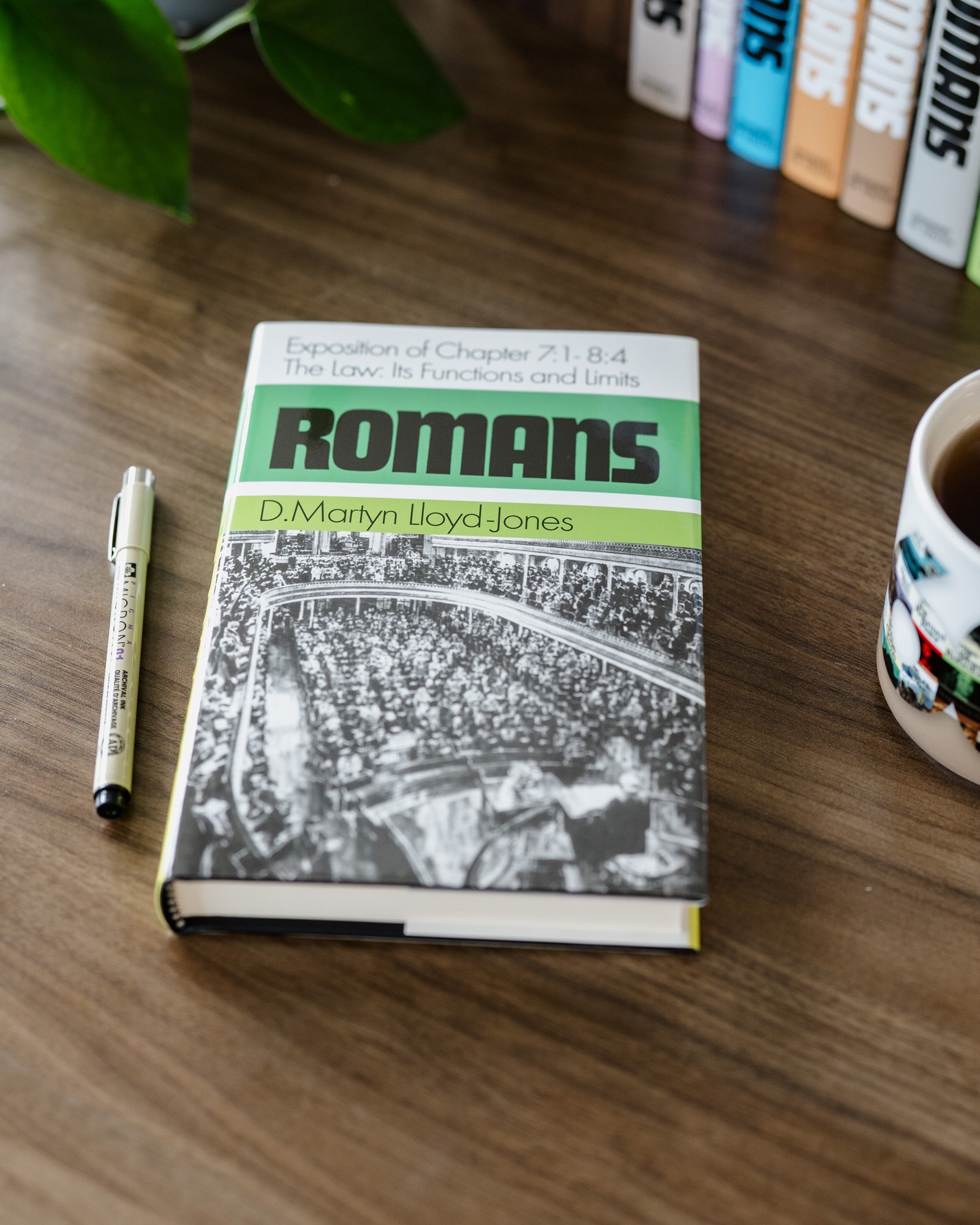
Richard C Ross –
The near legendary status of ‘the Doctor’s’ exposition of Romans tends to overwhelm objectivity. I trust it’ll not be out-of-place to suggest the interpretation in this particular volume isn’t the only position that could claim to be a fair representation of the Apostle’s thought.
The ‘man of Romans 7’ is here considered as neither unregenerate nor regenerate (or maybe both. I understand these points have been discussed at length and often, but not here.) There are obvious problems with this position; this isn’t the place to deal with them, but it is the place to mention them, and that for pastoral reasons. The view adopted in this exposition is eccentric: off the beaten track and exegetically questionable. But most suspect for being pastorally disturbing. It’s a risky thing to tell a (true) believer, sensitive to indwelling sin, that no (truly) regenerate person could (or should) cry out as the ‘man of Romans 7’ – even though Job, Moses, Jeremiah, David, Elijah, etc. did so (so too a ‘great cloud of witnesses’ in all subsequent ages). Any such will find support were they to consult the third volume of the Works of Thomas Brooks; or wade through volume 6 of the Works of John Owen, (or the modernised sections in ‘Puritan Paperbacks’). Or they may add ‘A Lifting Up of the Downcast’ to their reading list. Here they’ll find that a (true) child of God may undoubtedly know such a conflict within: ‘He that propounds evidences of grace, which are only proper to eminent Christians, as belonging to all true Christians, will certainly grieve and sad those precious lambs of Christ that He would not have grieved and saddened’. (Thomas Brooks, Works. III, 252) I recall Rabbi Duncan: ‘Thomas Shepherd is fine, but I wish I were as good as one of his hypocrites!’